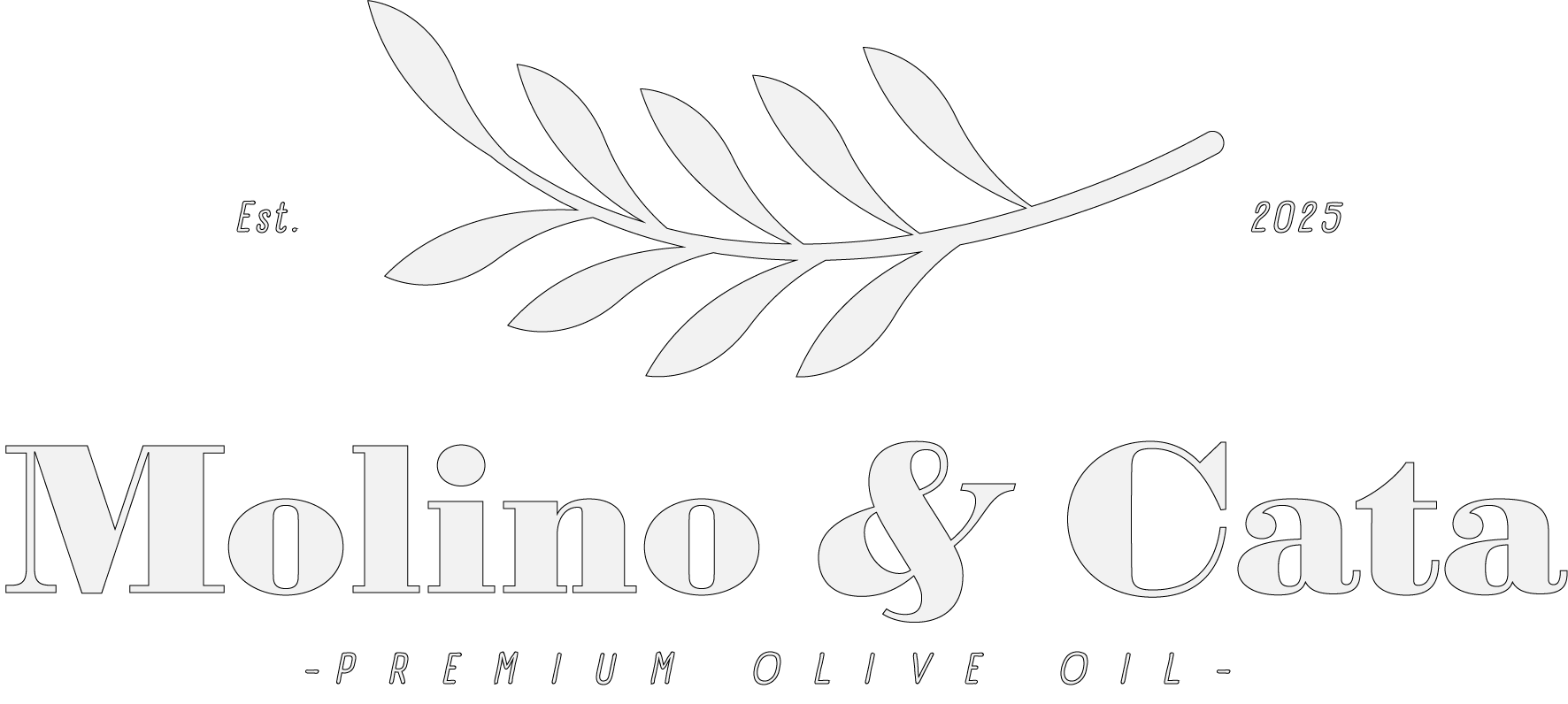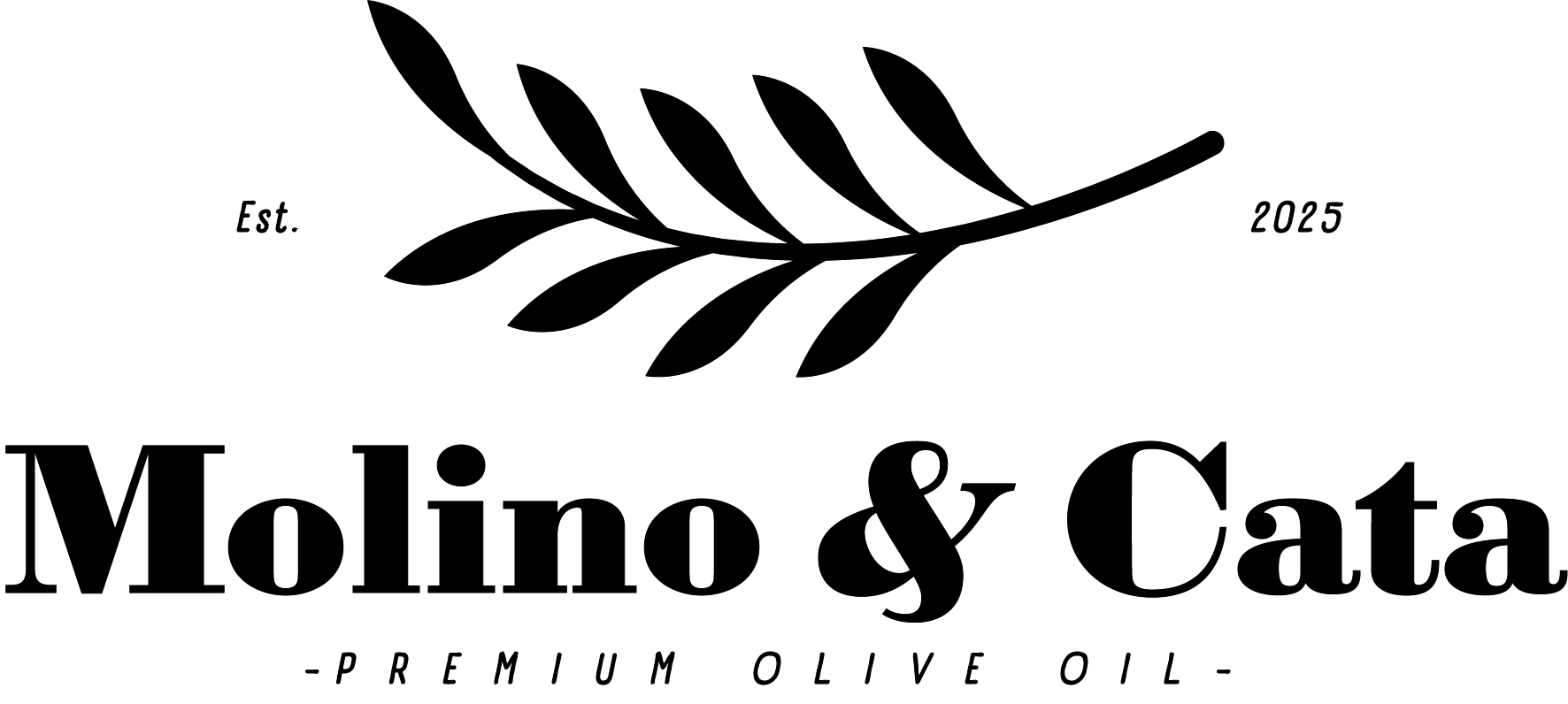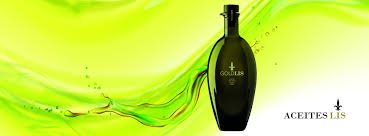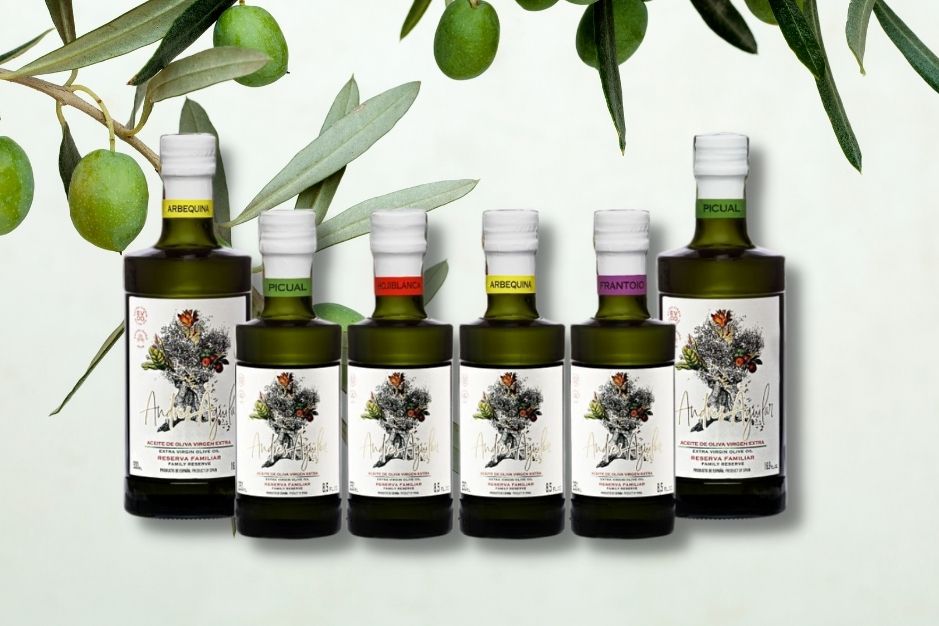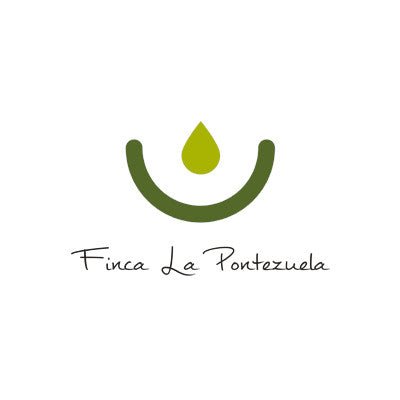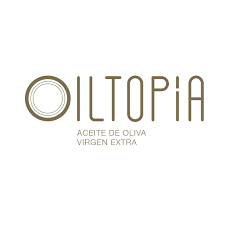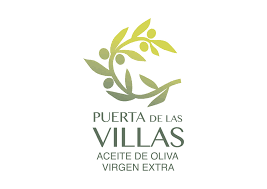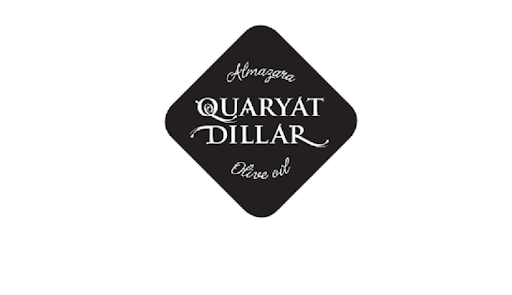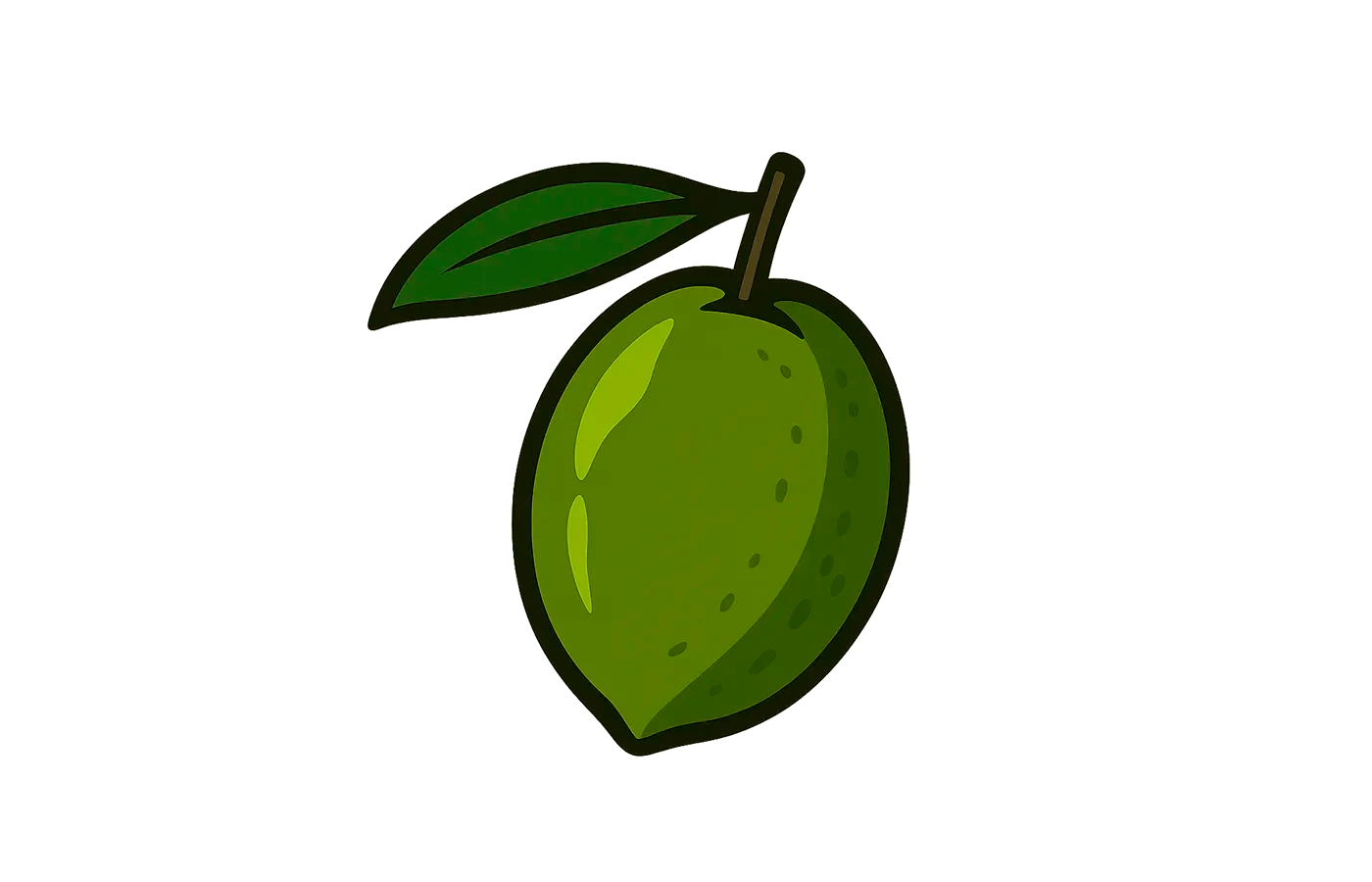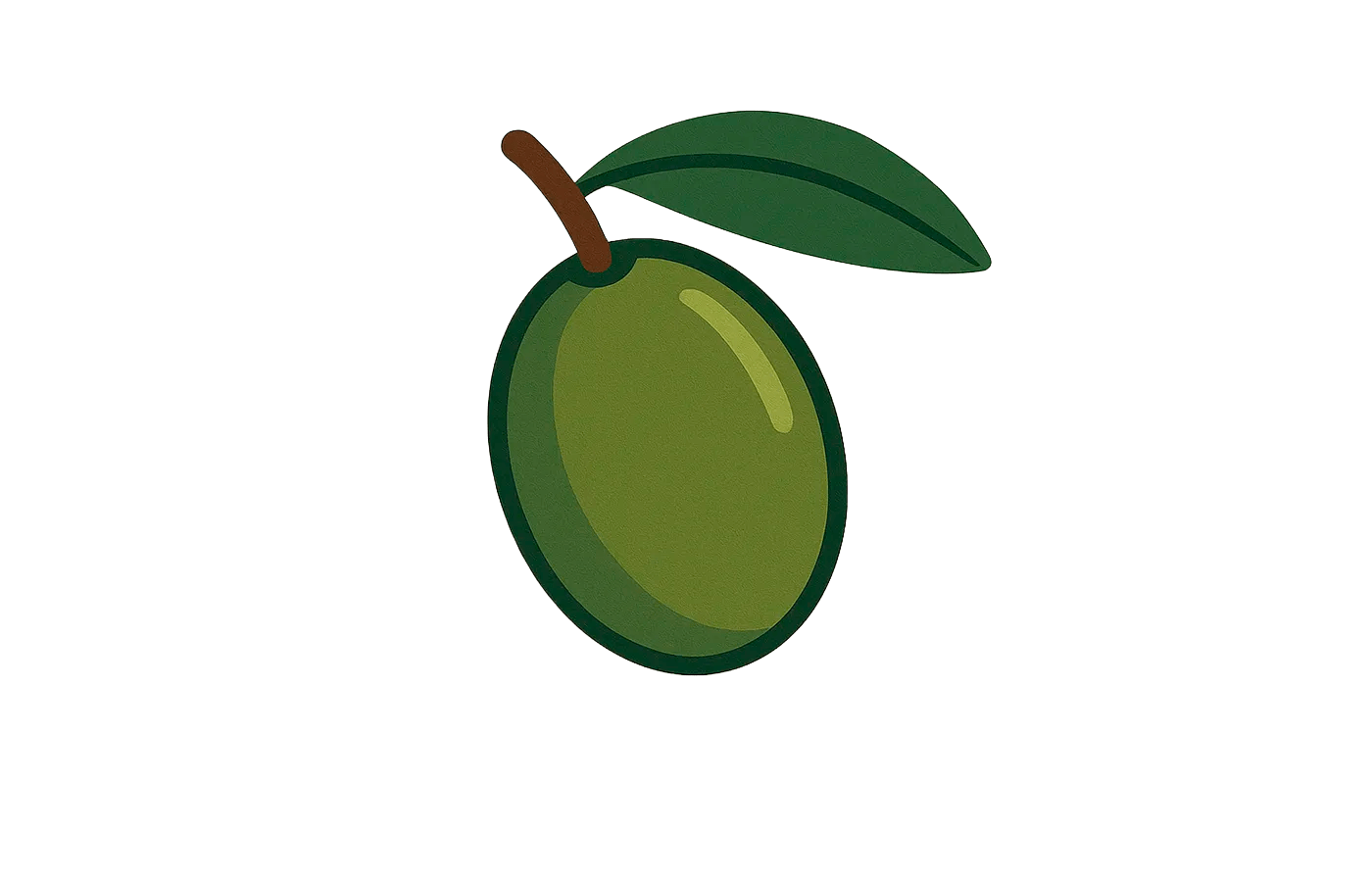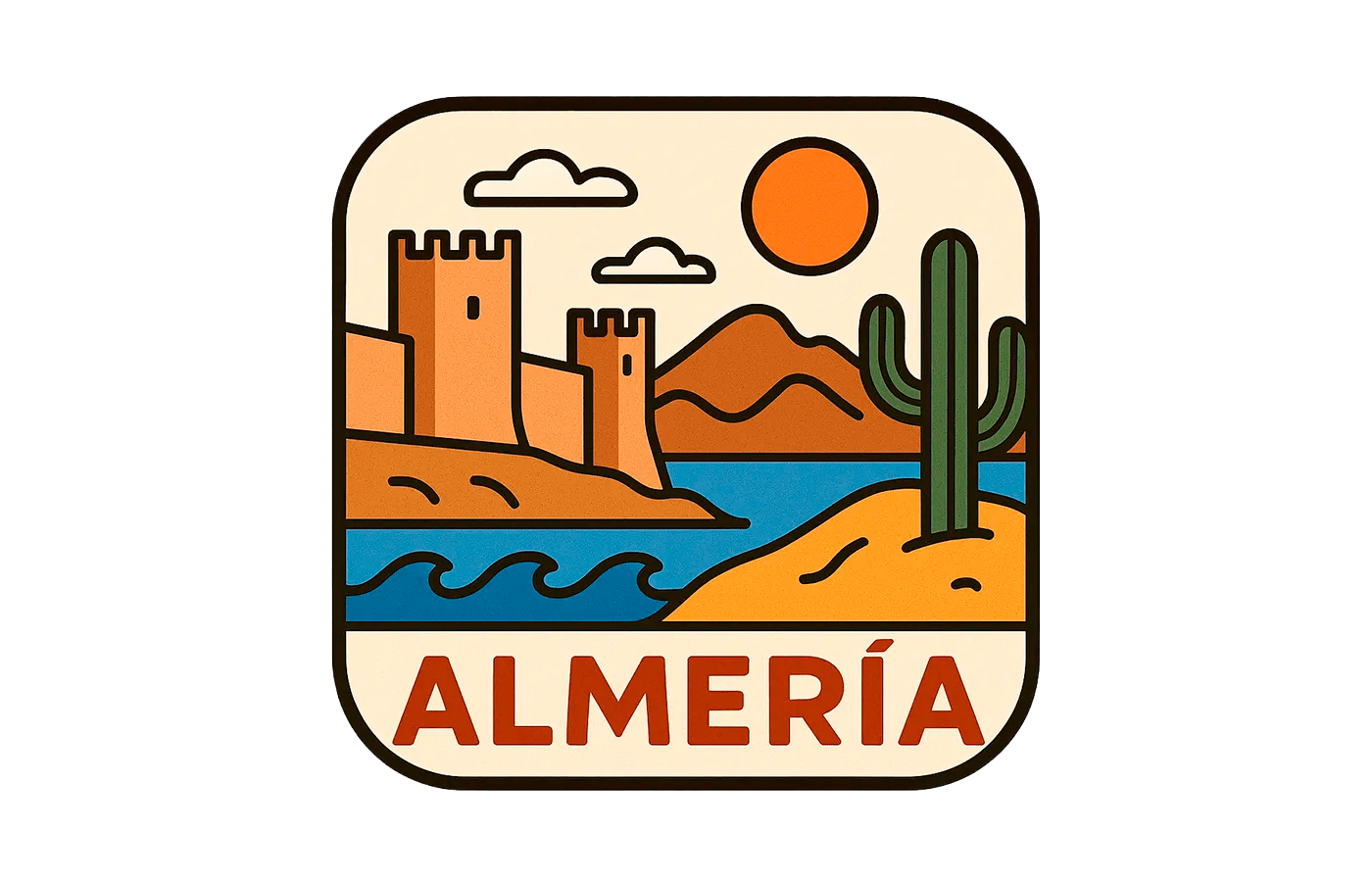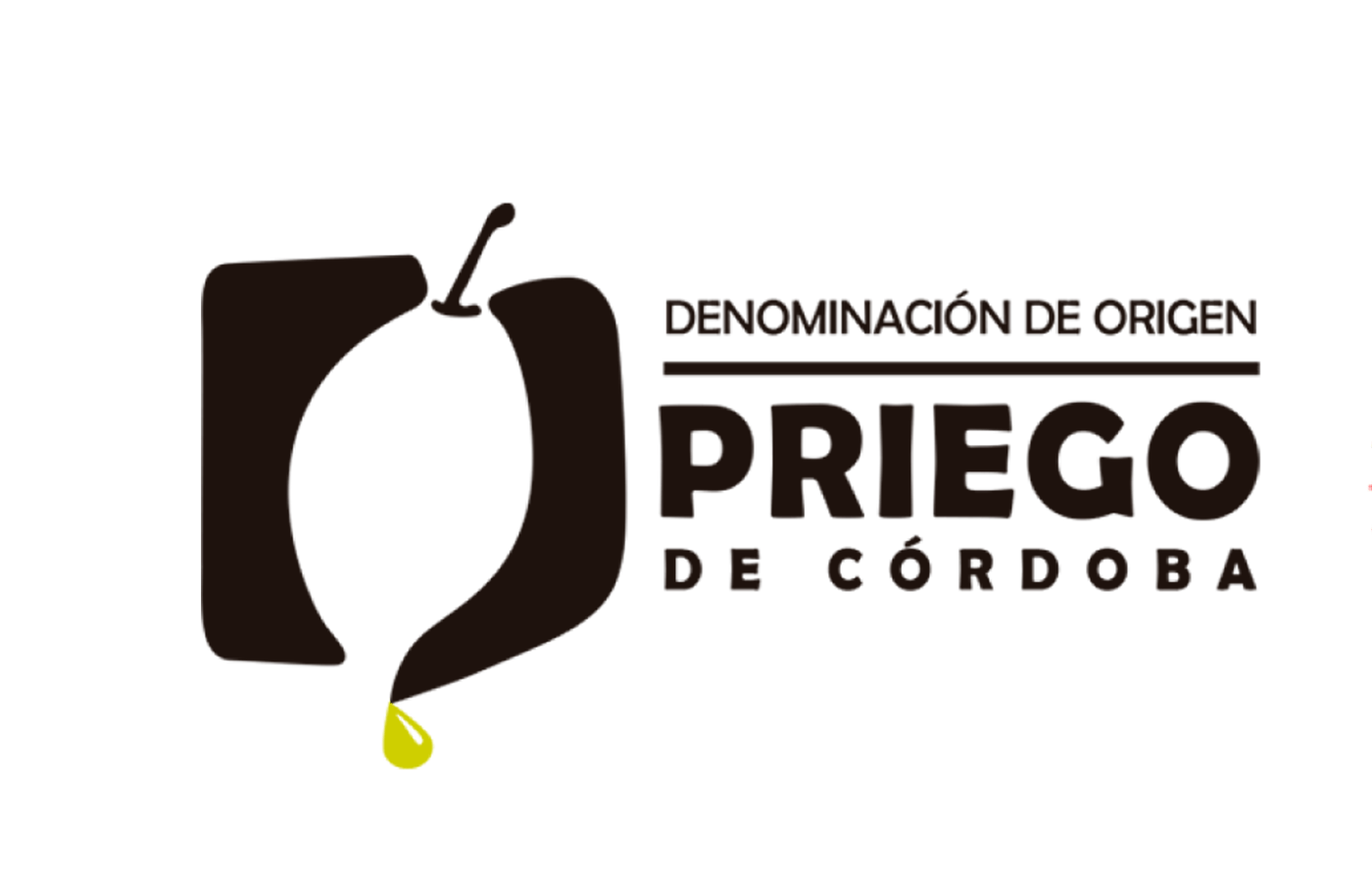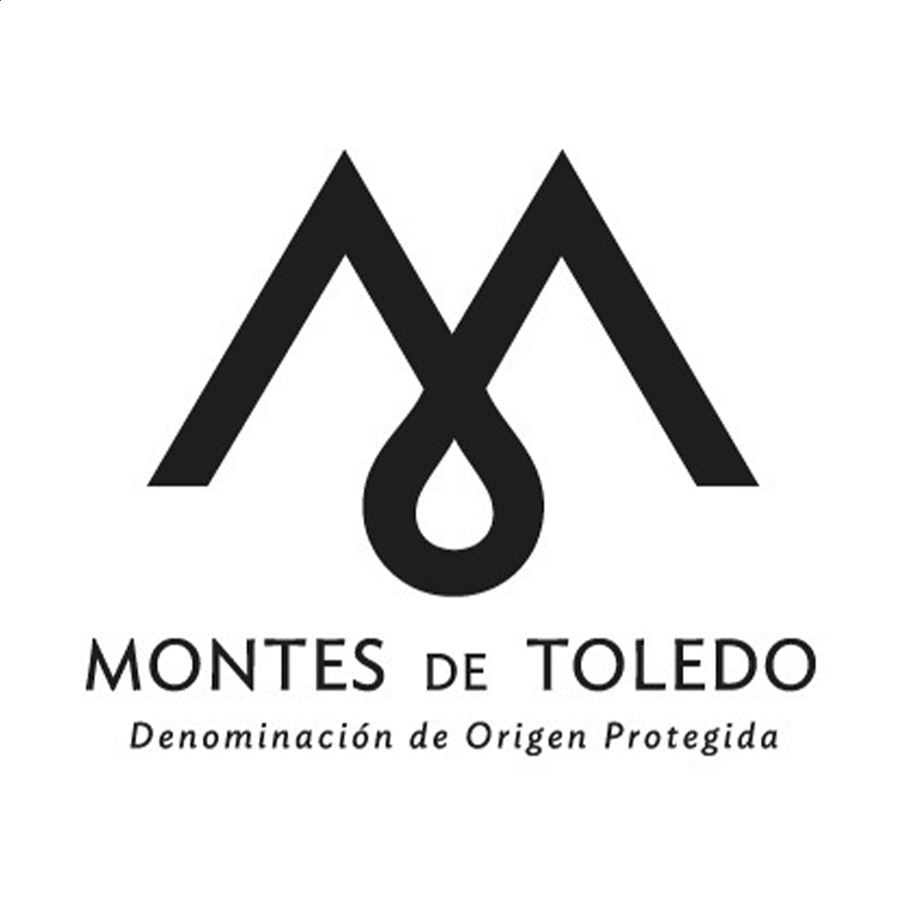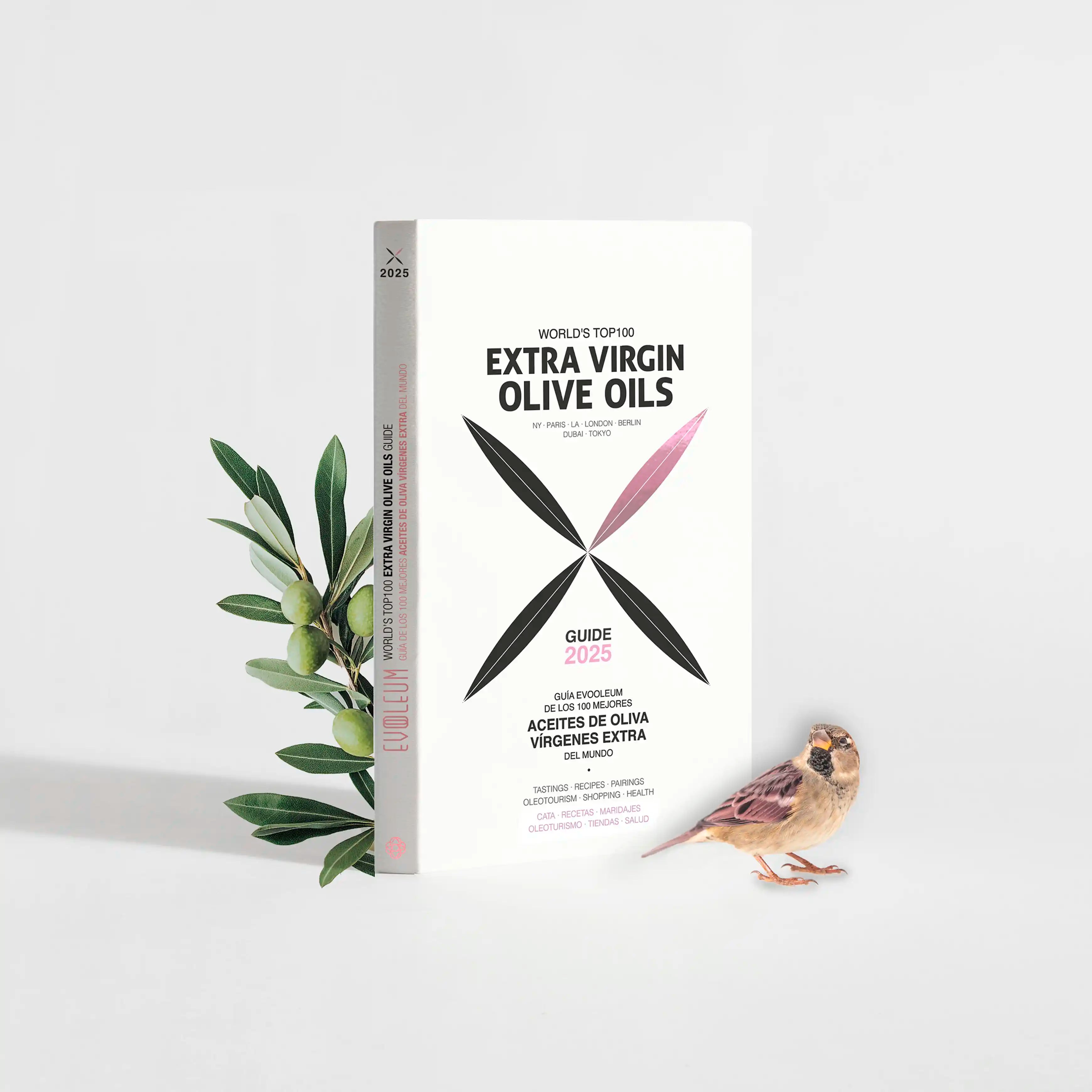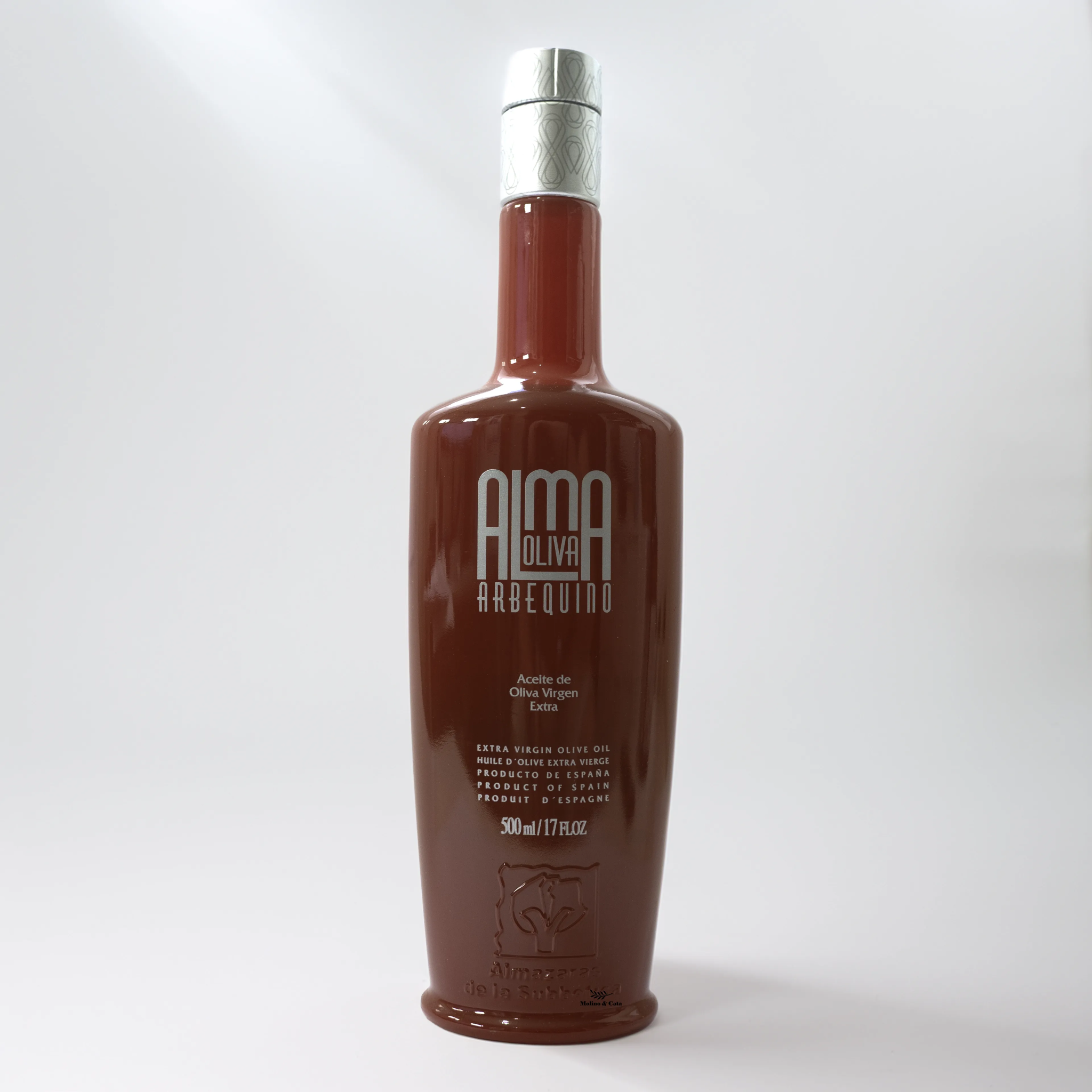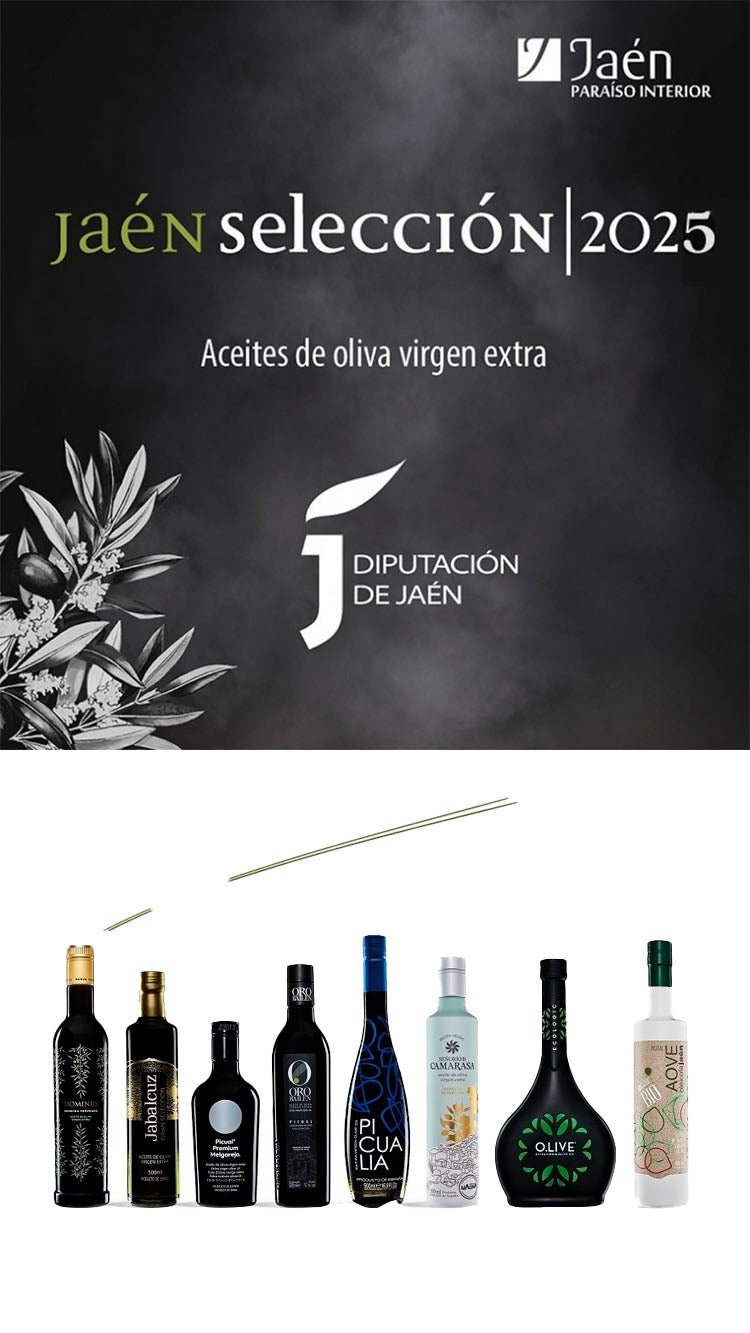
What Does “Extra Virgin” Mean in Olive Oil?
by Mercedes Uceda
Extra Virgin Olive Oil (EVOO) is the highest quality category according to European regulations and the International Olive Council (IOC). It must have a maximum free acidity of 0.8%, no sensory defects, and optimal organoleptic characteristics (positive fruity aroma). These standards are regulated by EU Regulation 2568/91 and subsequent updates.
The Four Legal Quality Levels of Olive Oil
| Category | Acidity (%) | Peroxides (meq O₂/kg) | K270 | Sensory defects |
|---|---|---|---|---|
| Extra Virgin | ≤0.8 | ≤20 | ≤0.22 | None |
| Virgin | ≤2.0 | ≤20 | ≤0.25 | Minor |
| Lampante | >2.0 | >20 | >0.25 | Serious |
| Refined | ≤0.3 | ≤5 | ≤0.90 | No sensory characteristics |
Source: EU Regulation 2568/91, International Olive Council (IOC).
(Virgin) Olive oil is obtained by mechanically extracting and separating fat from olives. Depending on the resulting product, three qualities can be distinguished:
- Extra Virgin Olive Oil (EVOO): Highest quality, no defects, exceptional flavor and aroma. Harvesting and processing are meticulous, quick, and hygienic.
- Virgin Olive Oil: Contains minor sensory defects in flavor and aroma. Although edible, it reflects less careful handling or processing.
- Lampante Olive Oil: Unfit for consumption without refining due to significant defects.
The official definition according to EU Regulation 2568/91 is: \"Oil obtained directly from olives solely by mechanical processes, with a free acidity expressed as oleic acid not exceeding 0.8 grams per 100 grams, and whose organoleptic characteristics (taste, aroma, absence of defects) meet the highest standards.\"
For an oil to be labeled as Extra Virgin, it must meet EU technical criteria. Just like a frozen supermarket pizza and a gourmet Italian pizza share a name but differ vastly in quality.
From Tree to Bottle – Step by Step
- Early harvest: Selecting optimal ripeness through laboratory analysis and expert sensory tasting.
- Immediate Milling: Cold extraction (≤27°C).
- Centrifugation and Filtering: Rapid and efficient removal of solids and moisture.
- Controlled Storage: Stored in stainless steel tanks, protected from light, air, and heat. Oxygen is replaced with nitrogen to delay oxidation.
Does Olive Variety Affect the Quality of Extra Virgin Oil?
The olive variety itself does not influence whether an oil is categorized as Extra Virgin. However, varieties significantly affect the flavor, aroma, and character of the oil.
Quality goes beyond labels, especially in cooking. Within the category of EVOOs, there are average oils and truly exceptional ones with unique flavor and aroma, as explained in our guide to buying Extra Virgin Olive Oil.
There are over 2,000 olive varieties globally, with fewer than 150 commonly used for oil production. Dominant varieties include Picual, Arbequina, Hojiblanca, and Frantoio, while new cultivars such as Chiquitita and Lecciana are emerging.
How is Extra Virgin Olive Oil Certified?
- Physicochemical laboratory analysis: Verifies acidity, peroxides, and phenolic levels according to official standards.
- Sensory evaluation (Tasting panel): Professional tasters confirm the oil's sensory properties.

Example of Oro del Desierto organic olive oil label.
Why Does It Matter? Scientifically Proven Benefits
EVOO is rich in antioxidants, particularly polyphenols, proven beneficial for cardiovascular health. The PREDIMED study (2018) concluded that regular EVOO consumption reduces risks of cardiovascular, inflammatory, and neurodegenerative diseases.
Its high polyphenol content and unique sensory qualities make it highly valued in kitchens worldwide and a cornerstone of the Mediterranean diet, contributing to the region’s longevity.
However, a recent controversy arose when the European Food Safety Authority (EFSA) requested additional clinical evidence to support cardiovascular health claims.
How to Identify an Authentic Extra Virgin Olive Oil on the Label
- Category: \"Extra Virgin\"
- Acidity: ≤0.8%
- Harvest or campaign date
- Bottling date
- Origin: geographical or Protected Designation of Origin (PDO)
Common Purchasing Mistakes (Updated 2025)
- Buying based solely on price.
- Confusing terms like \"pure,\" \"light,\" or \"mild\" with higher quality.
- Not verifying the origin and harvest date.
- Not checking the bottling date, affecting sensory and health properties.
Frequently Asked Questions (FAQ)
Can you fry with Extra Virgin Olive Oil?
Yes, it is stable and healthy for frying due to its high smoke point and antioxidants.
Does Extra Virgin Olive Oil expire?
No, but sensory and nutritional qualities decline after 18–24 months. Once opened, use within four weeks.
Should you store it in the fridge?
No, store it in a cool, dark, and dry place.
Is it always better than Virgin olive oil?
Yes, Extra Virgin always has superior sensory and nutritional qualities.
Conclusion & Tips for Buying Extra Virgin Olive Oil
- Check the harvest date.
- Verify certification seals (PDO or organic).
- Choose dark bottles or packaging protecting against light.
- Look for awards and quality recognitions.
Author: Mercedes Uceda, Biologist & Olive Oil Tasting Expert
Expert Reviewer: Dr. Marino Uceda, Agronomist, Elaeologist, Lead Researcher at IFAPA and IOC Advisor.
Last Reviewed: August 2025
Photo by Jessica Lewis 🦋 on Unsplash
Share
